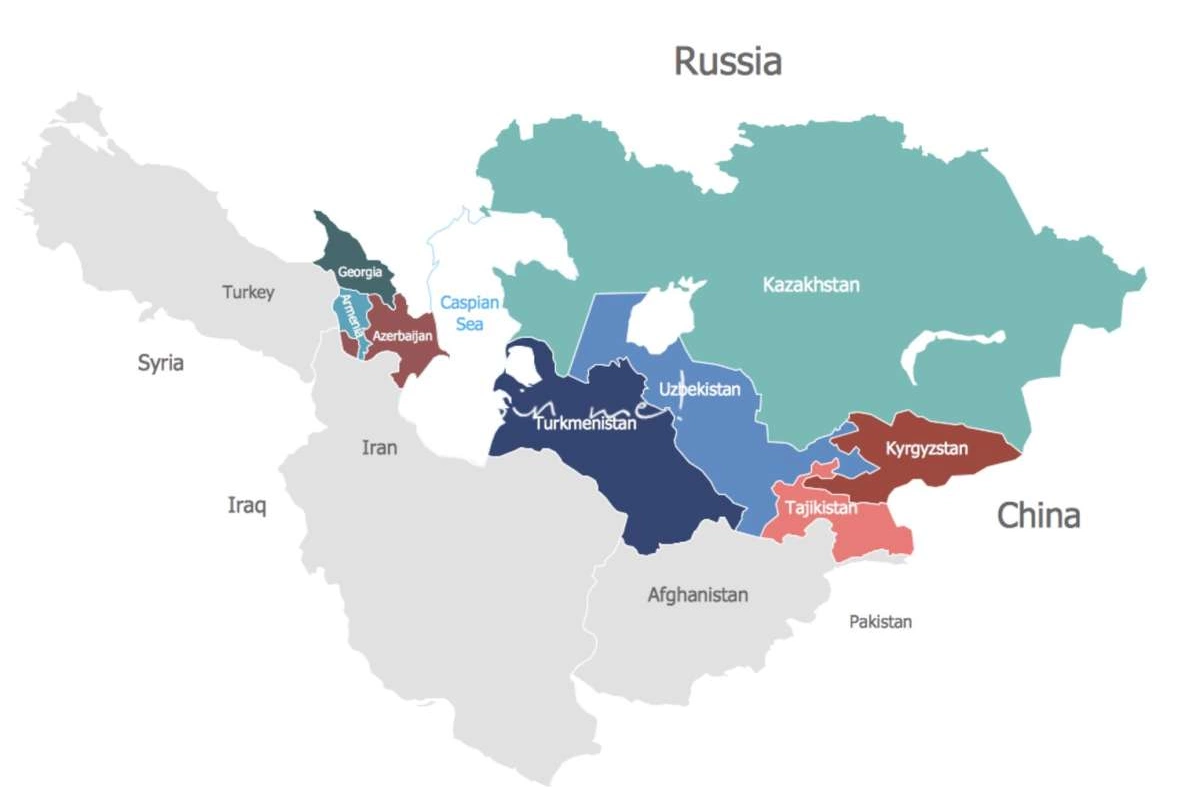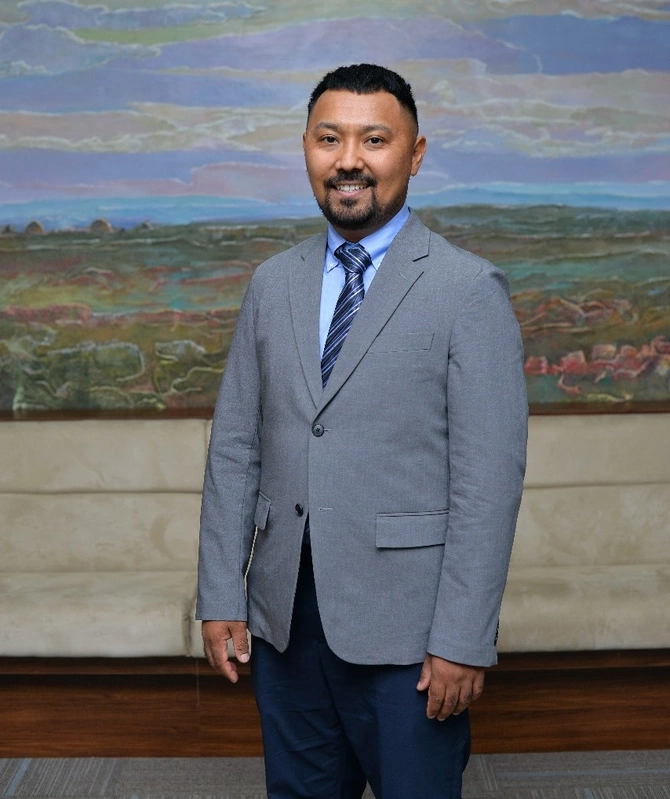
Türkiye counters Russia by aligning with Azerbaijan and Georgia, advancing projects like the Baku-Tbilisi-Ceyhan pipeline, and leveraging its NATO role to promote stability. Iran, meanwhile, balances cooperation with Russia while guarding against Azerbaijani nationalism and Türkiye's growing influence. The region is effectively divided into North-South (Russia-Iran) and East-West (Türkiye-Georgia-Azerbaijan) alliances, complicating conflict resolution. Stability requires regional powers to shift from competition to cooperation.
Google images
The Caspian Post presents an interview with Sagadi Kisikov (Kazakhstan) – an expert in international politics, global governance, and business administration. He is a Research Fellow at the “International School of Economics” in the International Relations Program at Maqsut Narikbayev University (Astana). His research focuses on Kazakhstan’s foreign policy and the activities of international and regional organizations in Central Asia. He works at the Heartland Expert-Analytical Center .
- How do you assess the current state of military security in the South Caucasus, and what role do you think regional powers like Russia, Türkiye, and Iran play in shaping the security dynamics of this region?
- The South Caucasus is destabilized by unresolved conflicts such as Nagorno-Karabakh, Abkhazia, and South Ossetia. Russia seeks to dominate the region by supporting nations advocating self-determination and maintaining military bases, acting both as a mediator and a power player. This approach strengthens its control while addressing its security concerns, including NATO's expansion.
Türkiye counters Russia by aligning with Azerbaijan and Georgia, advancing projects like the Baku-Tbilisi-Ceyhan pipeline, and leveraging its NATO role to promote stability. Iran, meanwhile, balances cooperation with Russia while guarding against Azerbaijani nationalism and Türkiye's growing influence. The region is effectively divided into North-South (Russia-Iran) and East-West (Türkiye-Georgia-Azerbaijan) alliances, complicating conflict resolution. Stability requires regional powers to shift from competition to cooperation.
- With rising geopolitical tensions in the Middle East, particularly involving Iran and its nuclear ambitions, how might these developments impact the broader security architecture of Central Asia and the Caucasus?
- Iran's geopolitical actions and nuclear ambitions add complexity to the security dynamics in Central Asia and the Caucasus by influencing energy routes, regional alliances, and the involvement of external powers. Iran's role in facilitating or disrupting energy transit routes, such as pipelines in the Caspian Basin, impacts the energy strategies of both regions. Increased tensions involving Iran could hinder regional cooperation on energy security and development projects.
The South Caucasus states rely heavily on external powers for security. Iranian tensions surrounding its nuclear program heighten regional security dilemmas, compelling states to strengthen ties with either Russia or Western alliances like NATO. As tensions escalate, the U.S. and NATO may increase their involvement in Central Asia and the Caucasus, further polarizing regional alignments. This could lead to increased militarization and heightened competition among external powers.
- In light of recent global conflicts and the growing significance of great-power competition, what strategies should Central Asian countries adopt to enhance their national and regional security?
- The global geopolitical landscape increasingly centers on Central Asia, where great-power competition among the United States, Russia, and China intersects with the region's critical role in energy production, transit routes, and strategic geography. Central Asian states must navigate these competing influences by diversifying partnerships. Over-reliance on a single power risks compromising sovereignty and flexibility.
Engaging with the United States for economic and security support, aligning with China's Belt and Road Initiative, and leveraging Russia’s military cooperation through the Collective Security Treaty Organization (CSTO) offers a balanced approach. Simultaneously, active participation in the Shanghai Cooperation Organization (SCO) provides a platform to mitigate security risks while maintaining autonomy.
Energy resources are Central Asia's greatest asset but also a source of vulnerability. Countries like Kazakhstan, Turkmenistan, and Uzbekistan must focus on diversifying energy export routes to reduce dependency on Russian or volatile Middle Eastern transit corridors. Developing alternative pipelines, such as those bypassing the Caspian Sea or linking to China, ensures stability in the face of global conflicts. Economic diversification beyond hydrocarbons, through investment in infrastructure and regional trade, is essential for long-term resilience.
Internal challenges such as ethnic divisions, territorial disputes, and radicalization risks underscore the need for stronger regional cooperation. Central Asian nations should establish robust conflict-resolution mechanisms and prioritize the peaceful settlement of border disputes. Collaborative security frameworks tailored to regional contexts, such as anti-terrorism initiatives within the SCO and bilateral agreements for border management, are critical.
Adopting neutrality in foreign policy, as exemplified by Turkmenistan, offers a strategic advantage by minimizing entanglement in great-power rivalries. Neutrality enables states to maintain autonomy in decision-making while avoiding the political and military pressures associated with alliances. By positioning themselves as mediators or non-aligned states, Central Asian countries can attract investment and security partnerships without compromising their sovereignty.
Strengthening internal governance and socio-economic stability is foundational to national security. Addressing corruption and weak governance, which undermine legitimacy and create vulnerabilities to external manipulation, is imperative. Additionally, countering radicalization through education, employment opportunities, and social cohesion programs will enhance resilience. A stable domestic front strengthens the region's bargaining power in global affairs.
By balancing external influences, prioritizing energy and economic resilience, fostering regional cooperation, adopting neutral foreign policies, and enhancing domestic stability, Central Asia can transform from a strategic battleground to a stable and prosperous hub. These strategies safeguard national security and contribute to a sustainable regional order.

- How do you see the role of international institutions like the UN and the OSCE in addressing security challenges in regions like the Middle East and the Caucasus? Are they effective, or is there a need for alternative frameworks?
- International institutions such as the United Nations (UN) and the Organization for Security and Co-operation in Europe (OSCE) play pivotal roles in addressing complex security challenges in the Middle East and the Caucasus. These organizations contribute to conflict resolution, peacekeeping, and technical assistance, but their effectiveness is often constrained.
The UN's involvement in the Middle East includes peacekeeping missions, humanitarian aid, and mediation in conflicts such as those in Syria, Palestine, and Yemen. While agencies like the UNHCR effectively address refugee crises, the UN's broader impact is frequently hampered by Security Council vetoes and conflicting interests among great powers. Similarly, in the Caucasus, the UN's peace processes and support for internally displaced persons (IDPs) are limited by geopolitical sensitivities involving regional powers.
The OSCE, with its focus on comprehensive security, operates extensively in the Caucasus, particularly through initiatives like the Minsk Group for Nagorno-Karabakh. However, its consensus-based decision-making and lack of enforcement mechanisms hinder its ability to implement substantial reforms.
Enhanced regional cooperation mechanisms, local organizations, and hybrid mediation models combining international expertise with local leadership can complement global efforts. Addressing gaps in enforcement and representation through these approaches may improve outcomes in addressing volatile regional security issues.
- How does Kazakhstan feel about the idea of creating a military bloc within the Organization of Turkic States (OTS)?
- Kazakhstan prioritizes institutionalizing cooperation within the Turkic world, recognizing the strategic importance of the Organization of Turkic States (OTS). This aligns with Kazakhstan's multi-vector foreign policy, which emphasizes balanced relations across various geopolitical spheres. While Kazakhstan actively participates in the OTS, there is no explicit indication of advocating for its transformation into a military bloc.
The OTS focuses on promoting cultural, economic, and political cooperation among Turkic-speaking nations. While its scope has expanded to include security cooperation, the emphasis remains on fostering unity rather than forming a military alliance. Kazakhstan's foreign policy highlights maintaining balanced relations and avoiding excessive dependence on any single power. This cautious approach aligns with its broader strategic objectives and suggests a preference for strengthening cooperation without militarizing the organization.
Share on social media